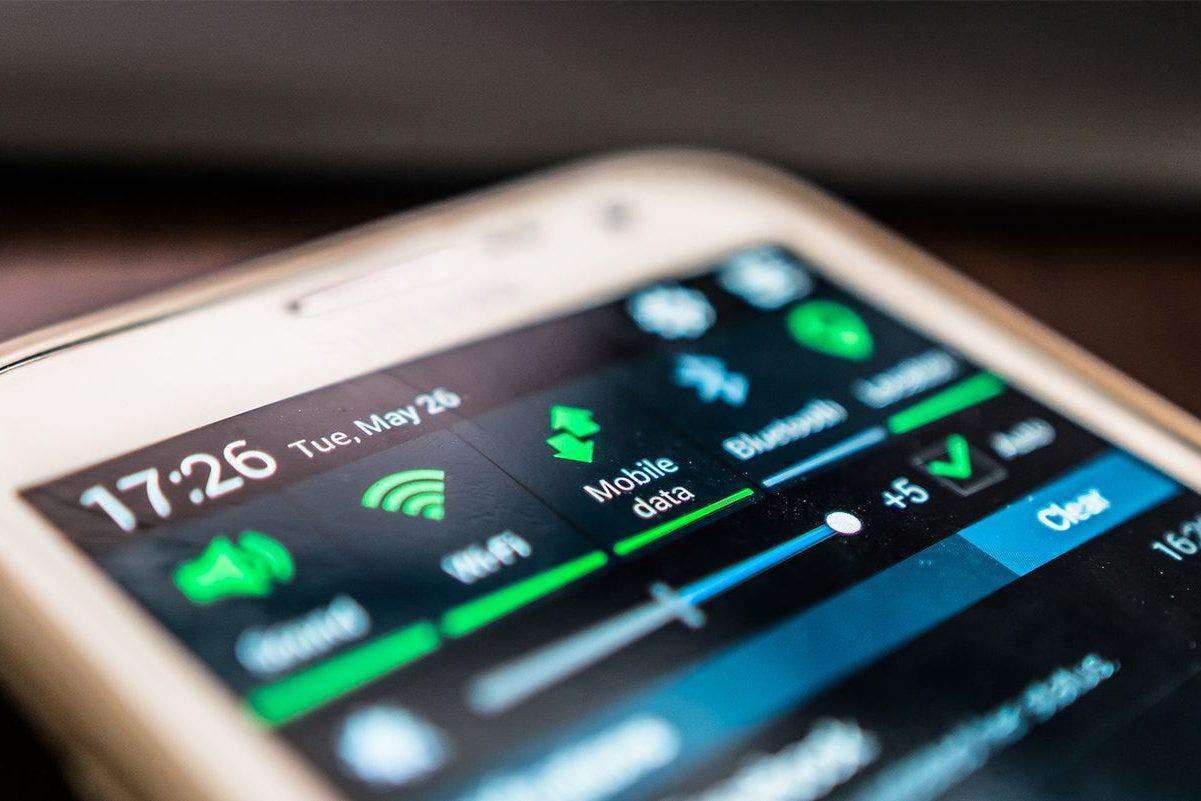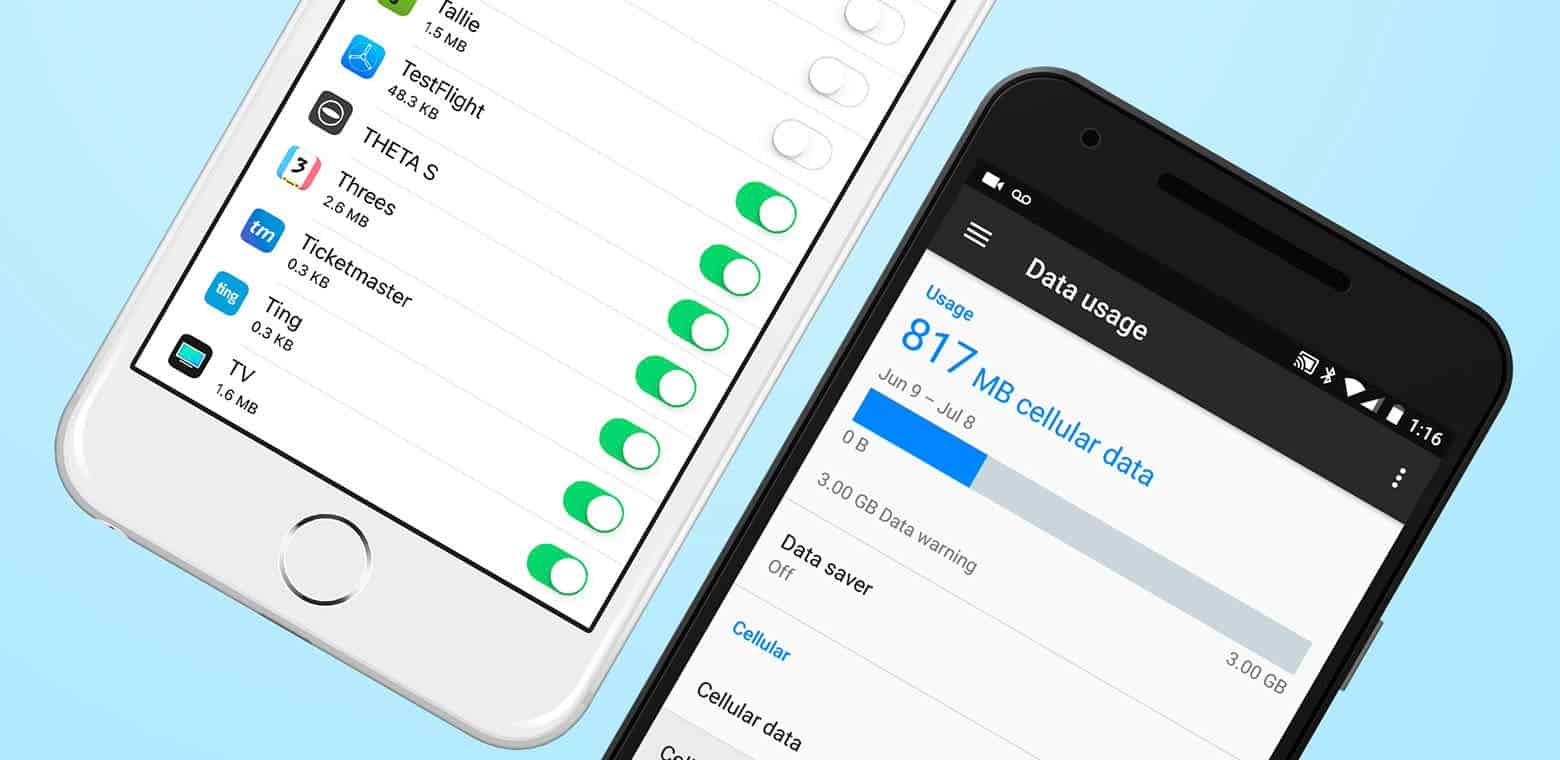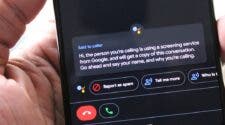In today’s digital age, mobile phones have become an indispensable part of our lives, connecting us to the world through a myriad of apps, services, and online content. However, this constant connectivity often comes at a price, as data plans can quickly deplete, leaving us scrambling for Wi-Fi connections or facing overage charges.
Fortunately, there are several practical strategies you can employ to extend the life of your mobile phone‘s data plan, ensuring you stay connected without breaking the bank. Here’s a comprehensive guide to help you maximize your data usage and avoid those dreaded overage fees.
Extending the Life of Your Mobile Phone’s Data Plan: A Comprehensive Guide

1. Understand Your Data Usage Habits
The first step towards extending your data plan is to gain a clear understanding of your current usage patterns. Most mobile carriers provide data usage tracking tools within their apps or online portals. These tools can reveal which apps consume the most data, how much data you use on average per day or week, and when your data usage peaks.
By analyzing your data usage habits, you can identify potential areas for improvement and make informed decisions about how to optimize your data consumption. For instance, if you notice that streaming music or video services are major data drains, consider switching to lower-quality streaming settings or opting for offline listening or viewing options.
2. Monitor Background App Refresh
Background app refresh, a feature available on both iOS and Android devices, allows apps to update and refresh content even when they’re not actively in use. While this feature can be convenient for receiving timely notifications and updates, it can also consume significant data in the background.
To minimize data usage, consider disabling background app refresh for apps that you don’t need to be constantly updated, such as social media platforms, news apps, or games. You can typically find this setting within the “Settings” app on your device, under “General” or “Applications.”
3. Use Wi-Fi Whenever Possible
Whenever you have access to a Wi-Fi network, make it a habit to switch from your mobile data to Wi-Fi. Wi-Fi offers a much faster and more reliable internet connection, and it won’t consume any of your precious mobile data.
Take advantage of Wi-Fi at home, work, school, libraries, coffee shops, and other public places. Additionally, consider investing in a portable Wi-Fi hotspot that you can carry with you to stay connected on the go.
4. Optimize Data Usage for Specific Apps
Many popular apps offer data-saving settings that can significantly reduce their data consumption. For instance, social media apps like Facebook and Instagram allow you to limit automatic video playback, pre-load photos, and reduce image quality to conserve data.
Similarly, streaming services like Netflix and Spotify often have options to adjust streaming quality and download content for offline viewing, minimizing the need to stream data every time you watch or listen.
5. Disable Automatic Updates
While keeping your phone’s operating system and apps up to date is essential for security and performance, automatic updates can quickly deplete your data allowance if you’re not connected to Wi-Fi.
Instead of relying on automatic updates, consider updating apps manually when you have access to a Wi-Fi network. You can typically find the “Updates” or “App Store” section within your device’s settings to manage app updates.s
6. Leverage Data-Saving Apps and Browser Extensions
Several data-saving apps and browser extensions are available for both iOS and Android devices. These tools can help you compress data, block unnecessary ads, and optimize data usage for specific websites and apps.
Popular data-saving apps include Onavo Extend, Opera Max, and Datally. For browser extensions, consider using Data Saver for Chrome or Opera Mini.
7. Minimize Data-Intensive Activities
While your mobile phone is capable of handling a wide range of activities, some tasks are particularly data-intensive, such as streaming high-definition videos, playing online games, or downloading large files.
If you’re concerned about data usage, try to limit these data-intensive activities to times when you have access to Wi-Fi or when your data plan is about to reset.
8. Consider Upgrading Your Data Plan
If you consistently find yourself exceeding your data limit despite implementing these strategies, it might be time to consider upgrading your data plan. Many carriers offer a variety of data plan options with varying allowances to suit different usage needs.
Evaluate your data usage patterns and choose a plan that aligns with your typical consumption. Remember, it’s often more cost-effective to upgrade your plan than to repeatedly incur overage charges.
9. Monitor Your Data Usage Regularly
It’s crucial to stay informed about your data consumption throughout the month. Most carriers provide real-time data usage tracking tools that you can access through their apps or online portals.
10. Take Advantage of Data Carryover
Many carriers offer data carryover programs that allow you to roll over unused data from one month to the next. This can be a valuable way to save money, especially if you have some months with lighter data usage.
Check with your carrier to see if they offer data carryover and what the specific terms and conditions are.

11. Explore Alternative Data Plans
In addition to traditional postpaid or prepaid data plans, there are a few alternative options that you can consider to save money on your mobile data usage.
-
Mobile virtual network operators (MVNOs) are third-party carriers that use the networks of major carriers. They often offer lower-priced data plans than the major carriers.
-
Wi-Fi calling is a feature that allows you to make calls and send texts over Wi-Fi instead of cellular data. This can be a great way to save data if you have access to Wi-Fi.
-
Unlimited data plans are becoming more common, but you should be aware that they may throttle your speeds after you reach a certain amount of data.
12. Manage Social Media Usage
Social media apps like Facebook, Instagram, and Twitter can be major data hogs. Here are a few tips for reducing your data usage on social media:
- Limit automatic video playback.
- Turn off autoplay for stories, GIFs, and other videos.
- Download photos and videos for offline viewing.
- Use data-saving mode for social media apps.
13. Compress Images and Videos
Before sending or sharing large images or videos, consider compressing them to reduce their file size. There are many free and paid apps that can help you compress your files.
14. Disable Push Notifications
Push notifications can be a major source of data usage, especially if they include images, videos, or other multimedia content. To reduce your data usage, consider disabling push notifications for apps that you don’t need to be alerted about every time there’s an update.
15. Switch to Text-Only Messages
When possible, send text-only messages instead of multimedia messages like iMessages or WhatsApp messages. Text-only messages use much less data than multimedia messages.
16. Use a Data-Saving Browser
There are several data-saving browsers available, such as Opera Mini and Firefox Focus. These browsers can help you reduce your data usage by compressing web pages and blocking unnecessary ads.
17. Use a Private DNS Provider
A private DNS provider can help you reduce your data usage by resolving hostnames more efficiently. This can save you data, especially if you frequently visit websites with images or videos.
18. Be Mindful of Background Apps
Some apps continue to use data even when you’re not using them. To reduce your data usage, be sure to close apps when you’re finished using them.
19. Keep Your Phone Updated
Keeping your phone’s software up to date can help to improve its performance and reduce data usage. Newer versions of iOS and Android often include features that can help you save data.
20. Be Patient
It may take some time to adjust your habits and reduce your data usage. But with a little effort, you can save money and extend the life of your mobile phone’s data plan. By following these tips, you can enjoy the convenience of your mobile phone without breaking the bank.
Additional tips and tricks to extend the life of your mobile phone’s data plan

-
Plan your data usage: Before your monthly data plan cycle resets, take a moment to review your data usage patterns and identify any areas where you can make adjustments. This could involve reducing data-intensive activities during peak usage periods or using Wi-Fi whenever possible.
-
Disable automatic app updates: While keeping apps up to date is important, automatic updates can consume a significant amount of data. Consider disabling automatic updates and updating apps manually when you have access to Wi-Fi.
-
Utilize offline mode for apps: Many apps, such as music streaming services and social media platforms, offer offline modes that allow you to download content for later viewing or listening. This can be particularly useful for long commutes or areas with limited Wi-Fi connectivity.
-
Clear app caches regularly: App caches store temporary data that can accumulate over time, potentially affecting performance and consuming storage space. Regularly clearing app caches can help free up space and potentially reduce data usage.
-
Be mindful of location services: Location services can be useful for navigation and other location-based apps, but they can also drain your battery and data. Disable location services for apps that don’t require them to function.
-
Consider using a virtual private network (VPN): A VPN can help encrypt your data traffic and protect your privacy online. Some VPNs also offer data compression features that can reduce your overall data usage.
-
Monitor third-party data usage: Some third-party apps, such as antivirus software or weather apps, may consume data in the background. Keep an eye on your data usage and identify any apps that might be using excessive data.
Conclusion
In today’s digital world, data is essential for staying connected and accessing information. However, mobile data plans can be expensive, and it can be easy to exceed your data limit, resulting in hefty overage charges.
By following the tips in this comprehensive guide, you can effectively manage your mobile data usage, extend the life of your data plan, and save money. By making small changes to your habits and utilizing the available tools and strategies, you can enjoy the convenience of your mobile phone without worrying about your data usage or overage charges.
Remember, it’s all about being mindful of your data consumption and making conscious choices to optimize your usage. With a bit of effort and planning, you can stay connected and informed without breaking the bank.





